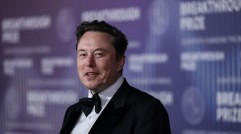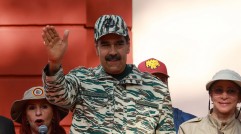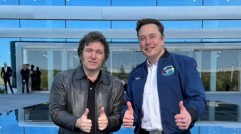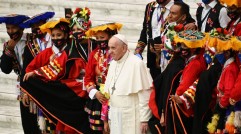Ebola Outbreak News 2014: Maine Nurse Breaks Quarantine and Goes Biking; State Officials Seek Court-Ordered Quarantine
The Maine nurse, who was forced into quarantine for the Ebola virus when she arrived at Newark International Airport last Friday -- despite showing no symptoms of the virus -- went for a one-hour bike ride with her boyfriend on Thursday, trailed by reporters and two state police cruisers.
US nurse Kaci Hickox defies Ebola quarantine orders, leaving house in Maine after saying she has no symptoms https://t.co/IYaiUWu0bF
— BBC Breaking News (@BBCBreaking) October 30, 2014
Kaci Hickox, who had recently been treating Ebola patients in Sierra Leone with Doctors Without Borders, so far shows no signs of the disease, and has been very critical of the mandatory quarantine. State officials are seeking a court order to enforce the 21-day quarantine if Hickox left the house. Today's excursion could set that legal fight in motion.
Hickox said the quarantine is unnecessary and counterproductive, adding that "these policies ... are just completely not evidence-based ... they don't do a good job of balancing the risks and benefits when thinking about taking away an individual's rights."
"I am not going to sit around and be bullied by politicians and forced to stay in my home when I am not a risk to the American public," Hickox told The New York Times on Wednesday.
These words have never been in the same sentence before: "Nurse Defies Ebola Quarantine With Bicycle Jaunt" https://t.co/Tf5aqZkiEj — Ben Greenman (@bengreenman) October 30, 2014
Maine Gov. Paul R. LePage offered a response to the situation in a statement on Wednesday.
"While we certainly respect the rights of one individual, we must be vigilant in protecting 1.3 million Mainers, as well as anyone who visits our great state," said Gov. LePage in the statement.
LePage along with governors in other states have imposed quarantines, including Connecticut, Georgia and Florida.
In Louisiana, state health officials told thousands of doctors planning to attend a tropical disease conference this weekend in New Orleans to stay away if they've had contact with an Ebola patient in the last 21 days, or have been to the three West African countries.
That decision means several doctors, including some from the World Health Organization and the Centers for Disease Control and Prevention, may not be able to attend the meeting that starts Sunday, reported The Associated Press.
Internationally, the epidemic continues to rage in Guinea, Liberia and Sierra Leone. The World Health Organization said it has received about half of the $260 million it needs to meet its objectives.
Subscribe to Latin Post!
Sign up for our free newsletter for the Latest coverage!














